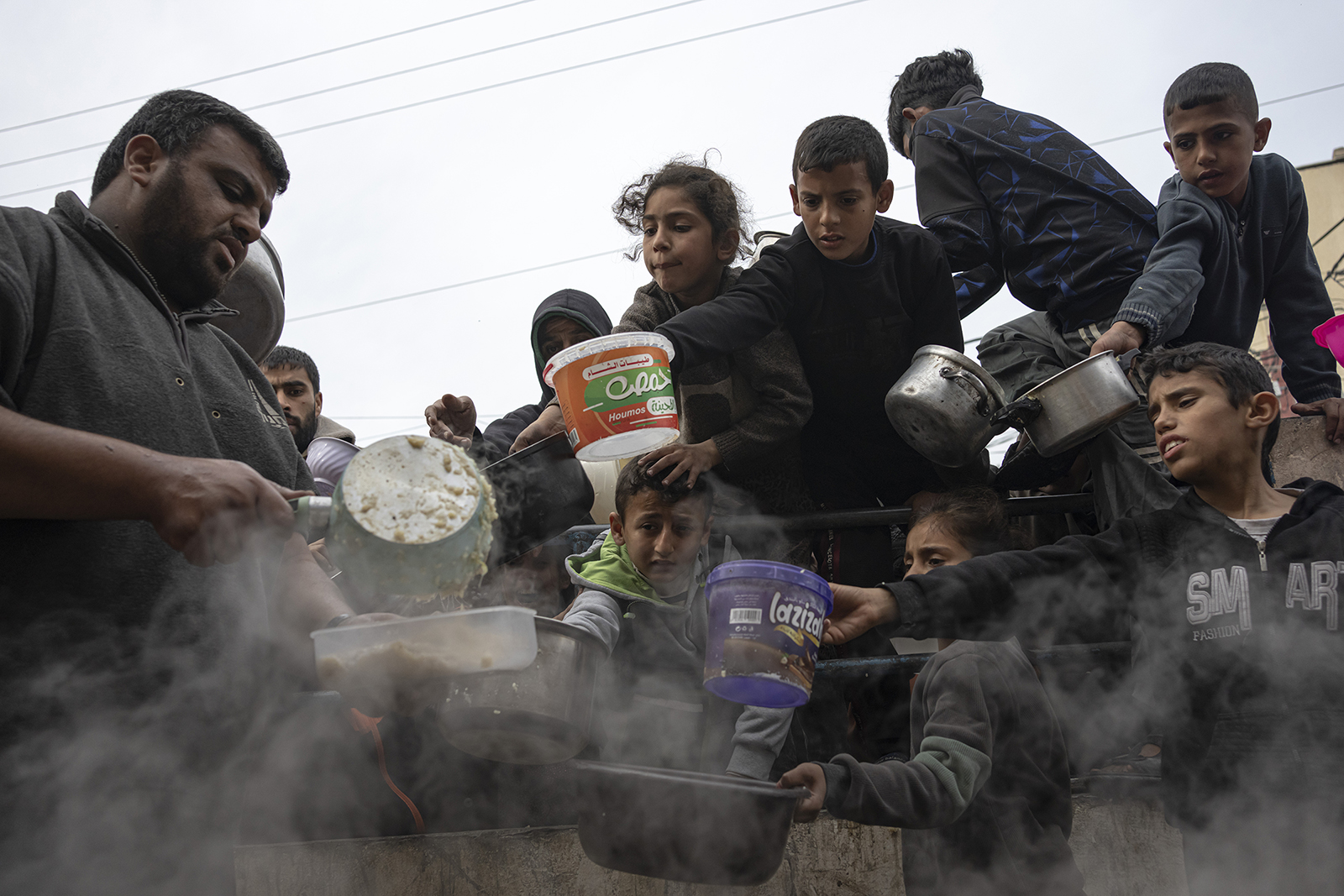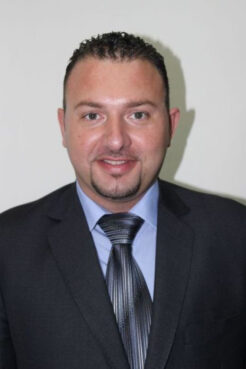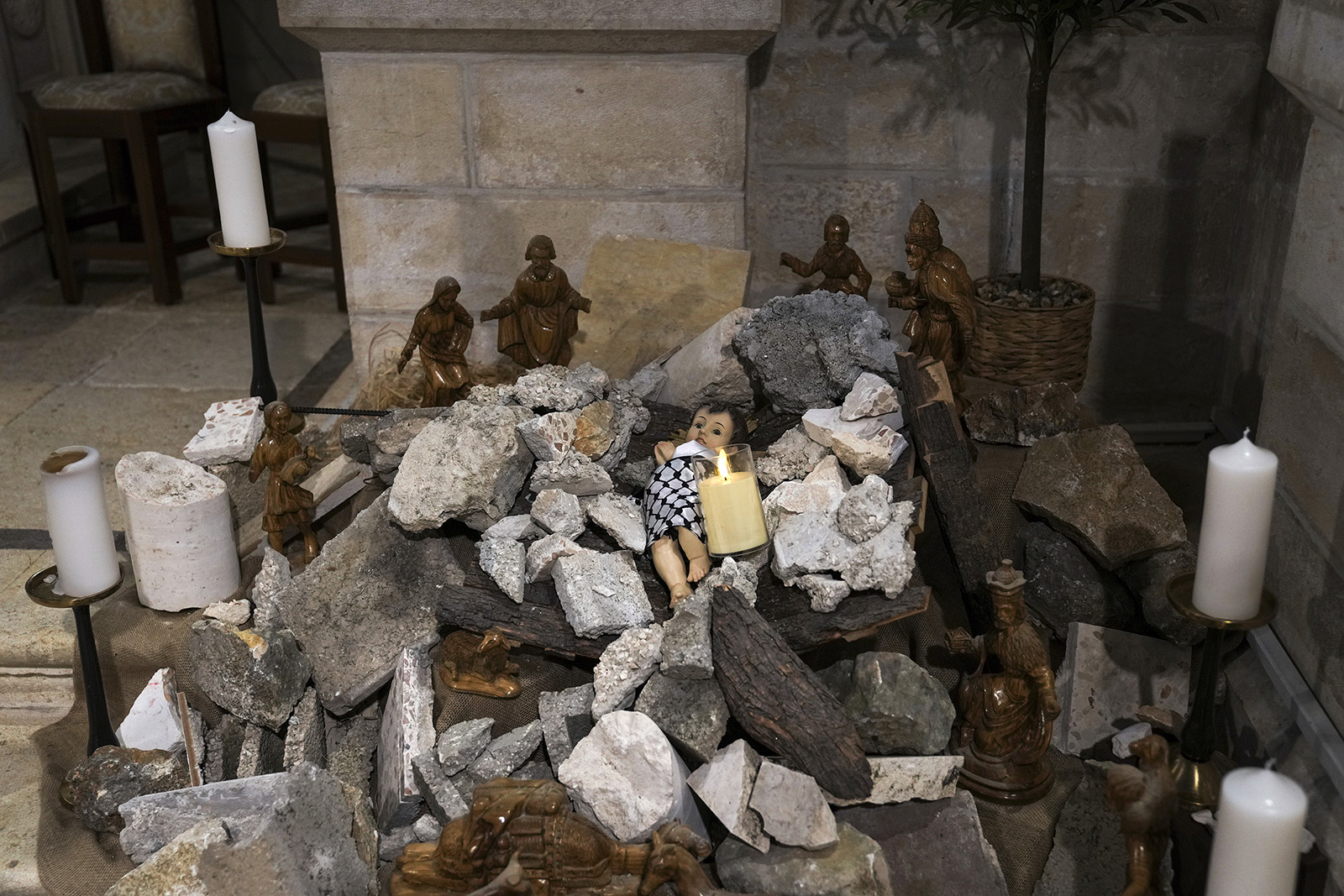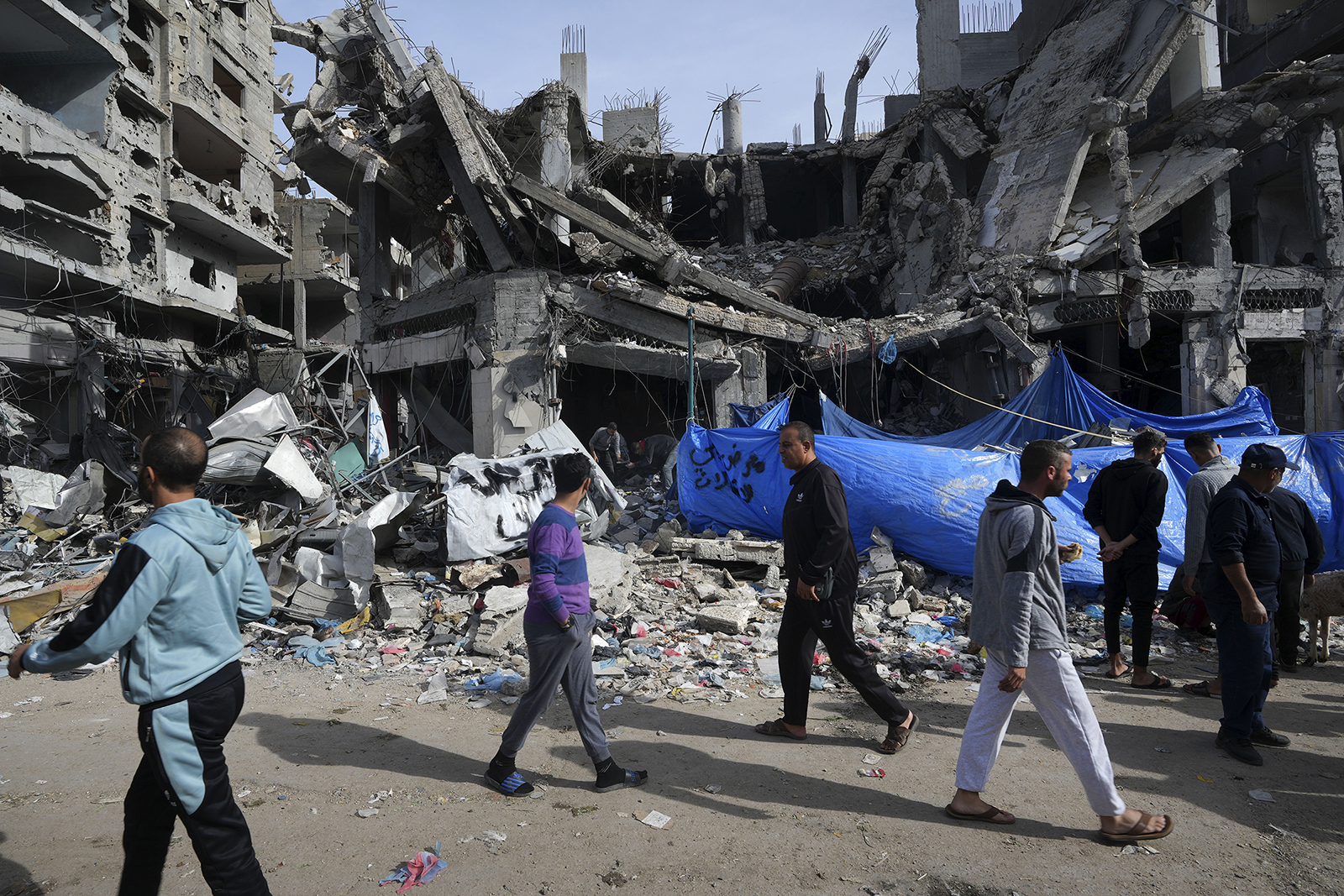
(RNS) — In the West Bank and Gaza, Christians are searching for ways to celebrate a subdued Christmas, with festivities canceled for the first time since the First Intifada in 1988.
Instead of the usual light-filled celebrations in the town where the Gospels say Christ was born, the municipality of Bethlehem is offering a vigil called “Nativity under the rubble” in solidarity with the Palestinians of Gaza. The vigil will be held Dec. 23 at the city’s Manger Square, named for the feeding trough in which Jesus is said to have slept after his birth.
The event’s focus will be an art installation showing what the Holy Family would have experienced if Jesus had been born today, said Bethlehem Mayor Hanna Hanania. “We decided to display this nativity under the rubble to have something that reflects our realities in our days,” he said.
After raising the Palestinian flag, sculptor Tariq Salsa, a resident of Bethlehem, will unveil a piece that denounces Israel’s retaliatory strikes after Hamas’ attacks from Gaza, explained the mayor.

Palestinians line up for a free meal in Rafah, Gaza Strip, Dec. 21, 2023. International aid agencies say Gaza is suffering from shortages of food, medicine and other basic supplies as a result of the two-and-a-half-month war between Israel and Hamas. (AP Photo/Fatima Shbair)
It will also include a scene representing the Holy Family fleeing to Egypt after Jesus’ father, Joseph, was told in a dream that King Herod was plotting to kill him. The piece draws parallels with images of northern Gaza families heading to southern Gaza at the direction of the Israeli army in the early days of the war, said the mayor.
Bethlehemites are mourning the mounting death toll in Gaza, explained Hanania. On Dec. 22, Gaza’s health ministry put the casualties at 20,057 deaths and more than 50,000 wounded. The ministry doesn’t differentiate between combatant and civilian casualties.

Bethlehem Mayor Hanna Hanania. (Photo courtesy City of Bethlehem)
The war has brought rising violence in the West Bank, said the mayor, which also influenced the municipality’s decision to cancel Christmas celebrations.
In the week following the Oct. 7 Hamas terrorist attacks that killed 1,200 Israelis, 55 Palestinians were killed in clashes with Israeli troops and Jewish settlers in the West Bank. According to U.N. monitors, it was the deadliest week for Palestinians in the West Bank since 2005.
“Our situation is so complicated, we cannot celebrate Christmas. We kept the spirit of Christmas under the status quo,” he said.
Canceling Christmas celebrations is a financial hardship for the city as well as a spiritual one, explained the mayor, as Bethlehem relies heavily on religious tourism, particularly during the Christmas season. Bethlehem welcomes up to 1.5 million tourists every year, according to the Palestinian Ministry for Tourism and Culture.
Around Christmas, Manger Square is one of the most animated places in the city as crowds come to see its massive decorated Christmas tree. The square is normally the starting point of Christmas Eve festivities. After locals and pilgrims gather there for the city’s famous caroling concerts, they head to the nearby Church of the Nativity for midnight Mass.
Bethlehem is administered by the Palestinian Authority, although Israeli-administered checkpoints guard its entrances. This year access has been restricted, and the city has found itself isolated from other West Bank cities, said the mayor.

An installation of a scene of the Nativity of Christ with a figure symbolizing baby Jesus lying amid the rubble, in reference to Gaza, inside the Evangelical Lutheran Christmas Church in the West Bank town of Bethlehem, Sunday, Dec. 10, 2023. World-famous Christmas celebrations in Bethlehem have been put on hold due to the ongoing Israel-Hamas war. (AP Photo/Mahmoud Illean)
For a local activist who asked to remain anonymous, this restraint on freedom of movement has always complicated Christmas celebrations in Bethlehem, even when there are no military clashes.
“In Palestine, the celebration of Christmas is also affected by the fact that Palestinians live under an Israeli military occupation, which controls the access of Christians to the holy sites and refrains them from celebrating and having moments of joy with their family members across the different lines of borders,” he said.
The Palestinian Christian, who is involved in Right to Movement Palestine, an organization that protests Israel’s strictures on Palestinians’ freedom to move between their towns and into Israel, said Christmas celebrations during his childhood have always been marked by strategies to avoid checkpoints to celebrate Christmas with family members in Jerusalem.
For him, the “Nativity under the Rubble” vigil shows that the city has found the proper framing to celebrate Christmas by focusing on commemorations and prayers for those who lost their lives.

Palestinians walk by buildings destroyed in the Israeli bombardment of the Gaza Strip in Nuseirat refugee camp, central Gaza Strip, Nov. 25, 2023, on the second day of the temporary cease-fire between Hamas and Israel. (AP Photo/Adel Hana)
Jerusalem Patriarch Theophilos III, the head of the Greek Orthodox Church of Jerusalem, will attend the vigil and midnight Mass at the Church of the Nativity, where congregants will pray for the victims of the war.
The decision to observe a somber Christmas in solidarity with the victims of the Israel-Hamas war came on Nov. 10, by an agreement among the patriarchs and heads of Jerusalem churches. The leaders of Jerusalem’s major Christian denominations urged Christians to refrain from unnecessary festivities and focus on the spiritual meaning of Christmas.
In their statement, the leaders invited believers to pray for the “relief of the victims of this war and those in dire need” and called for a humanitarian truce.
The most hopeful part of Saturday’s vigil, according to the mayor, will be an address by the children of Bethlehem to the children of Gaza, with a message in Arabic, English, French, Italian and Spanish.
“Peace was born in Bethlehem since Jesus Christ was born in Bethlehem City, and this noble message was distributed to the whole world. We are asking the international community to bring back this message to Bethlehem and Palestine,” the mayor said.

 Arabic
Arabic Chinese (Simplified)
Chinese (Simplified) Dutch
Dutch English
English French
French German
German Italian
Italian Portuguese
Portuguese Russian
Russian Spanish
Spanish